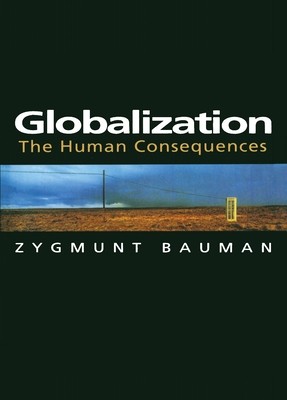
- We will send in 10–14 business days.
- Author: Zygmunt Bauman
- Publisher: Columbia University Press
- ISBN-10: 023111429X
- ISBN-13: 9780231114295
- Format: 13.7 x 18.9 x 1.1 cm, minkšti viršeliai
- Language: English
- SAVE -10% with code: EXTRA
Reviews
Description
Bauman shows in this detailed history of globalization that while human affairs now take place on a global scale, we are not able to direct events; we can only watch as boundaries, institutions, and loyalties shift in rapid and unpredictable ways. From the way the global economy creates a class of absentee landlords to current prison designs for the criminalized underclass, Bauman dissects globalization in all its manifestations: its effects on the economy, politics, social structures, and even our perceptions of time and space.
Drawing on the works of philosophers, social historians, architects, and theoreticians such as Michel Foucault, Claude Lévi-Strauss, Alfred J. Dunlap, and Le Corbusier, Globalization presents a historical overview of the methods employed to create and define human spaces and institutions, from rural villages to sprawling urban centers.
EXTRA 10 % discount with code: EXTRA
The promotion ends in 22d.03:07:36
The discount code is valid when purchasing from 10 €. Discounts do not stack.
- Author: Zygmunt Bauman
- Publisher: Columbia University Press
- ISBN-10: 023111429X
- ISBN-13: 9780231114295
- Format: 13.7 x 18.9 x 1.1 cm, minkšti viršeliai
- Language: English English
Bauman shows in this detailed history of globalization that while human affairs now take place on a global scale, we are not able to direct events; we can only watch as boundaries, institutions, and loyalties shift in rapid and unpredictable ways. From the way the global economy creates a class of absentee landlords to current prison designs for the criminalized underclass, Bauman dissects globalization in all its manifestations: its effects on the economy, politics, social structures, and even our perceptions of time and space.
Drawing on the works of philosophers, social historians, architects, and theoreticians such as Michel Foucault, Claude Lévi-Strauss, Alfred J. Dunlap, and Le Corbusier, Globalization presents a historical overview of the methods employed to create and define human spaces and institutions, from rural villages to sprawling urban centers.


Reviews